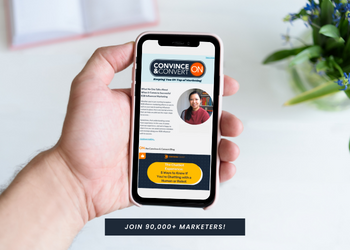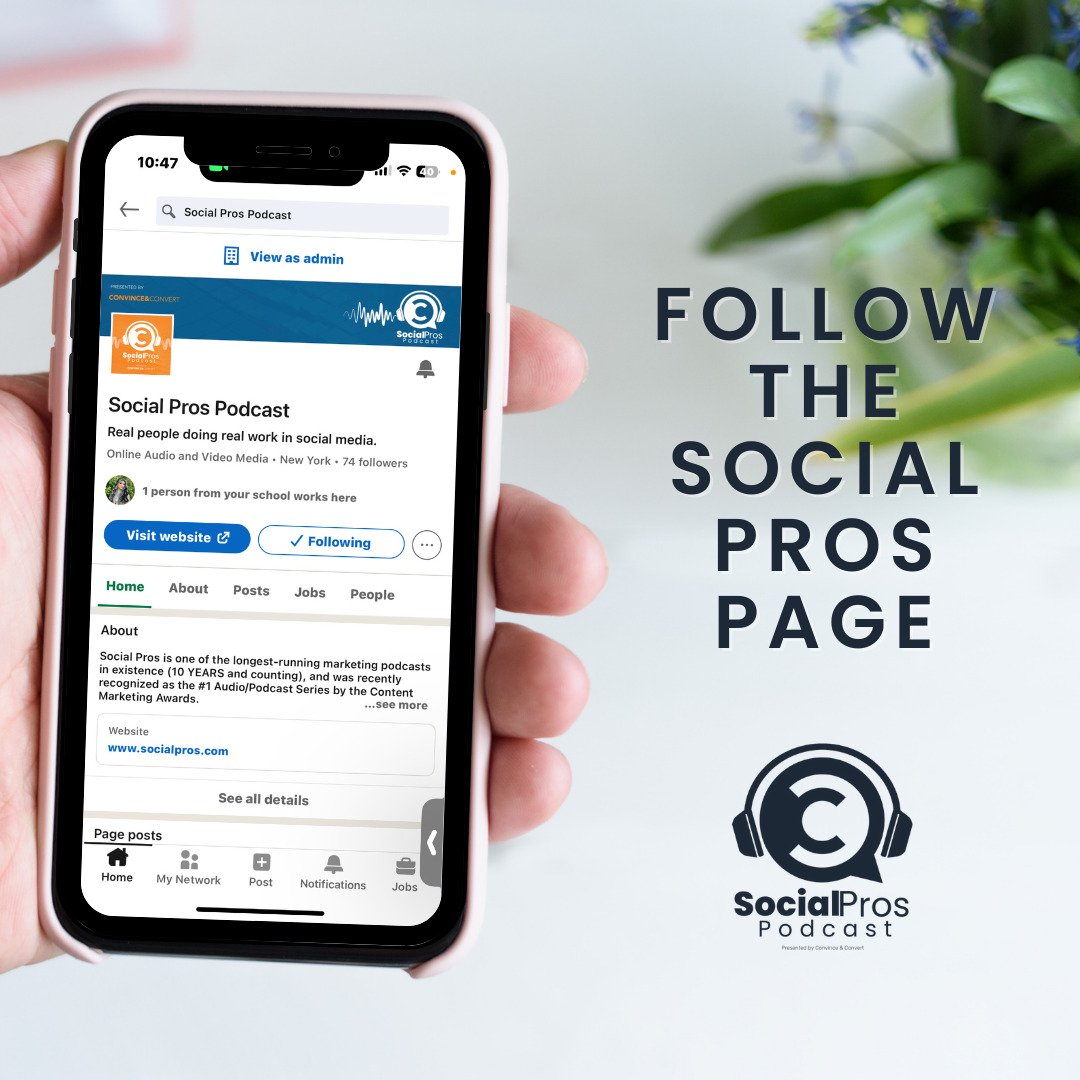If you’re in public relations or social media (preferably both), and you aren’t following the thinking of Dave Fleet, you’re resource-deficient.
A Brit living in Toronto and working as an Account Director at social PR powerhouse agency Thornley Fallis, Dave takes a lucid, common-sense approach to the upheaval that social media has brought to the shores of public relations.
Despite his growing, deserved notoriety in social media and PR circles, Dave spends a lot of time on the social Web discovering and promoting new bloggers and helping PR pros work through tough issues like disclosure, authenticity and measurement.
I interviewed Dave live on Twitter on November 4, 2009 where he waxed specific on social media, PR, and listening. Enjoy!
1. @jaybaer: What’s been the greatest impact of social media on public relations?
- @davefleet: Enabling organizations to engage in dialogue with their audiences. Previously one-way, through the media. Removes the filter.
- Also lets companies observe issues and feedback in real time. Provides a real lens into what people are saying about your brand.
2. @jaybaer: Is PR’s future then in content creation or content advice, rather than intermediary wrangling?
- @davefleet: Intermediaries aren’t going away; mainstream media still command vast audiences. The definition of “mainstream” is changing though.
- Content creation or advice (depending on situation) are playing an increasing role in PR as content moves online.
3. @jaybaer: Does social media’s always-on nature change staffing patterns for PR firms? Should it?
- @davefleet: Certainly has resource implications, but I think organizations should set expectations with consumers re: response times.
- Social media is 24/7, but that just doesn’t make business sense for most organizations. Slower outside business hours/weekend.
4. @jaybaer: What’s a better approach for agencies? Social media specialists, or making sure all staff understands social media?
- @davefleet: The lines between social and traditional media are blurring, so we aim for all our staff to have a broad understanding.
- Can’t expect everyone to know everything though, so there will still be specialists within that. Same with media relations.
5. @jaybaer: What social media responsibilities are better handled by the client, rather than the PR firm?
- @davefleet: Depends on the client. Ideally, clients handle the direct interaction but in reality not all are ready or have the resources.
- We know we’ve done our job well when the client turns and says they’re ready, or staffs-up for direct engagement.
- Agencies are still well placed to help clients with strategy, ideation, monitoring, dev, policies & counsel on interaction.
6. @jaybaer: What do you think about social media crises? Is having a specific social media crisis plan required? A best practice?
- @davefleet: Crisis plan is certainly helpful – it fits in with other processes companies should put in place for engagement.
- Decision tree (like the one the Air Force produced) and decision-making tree are very useful as issues can blow up quickly.
7. @jaybaer: Are good social media practitioners trained, or born? Is the “social” part inherent?
- @davefleet: This isn’t rocket science. You can learn the tools and the norms.
8. @jaybaer: Your agency (http://thornleyfallis.com) has many employees with their own blogs, instead of a group blog. Why?
- @davefleet: Depends on how you look at it. Our company website aggregates all of our blogs into one place – you can subscribe to one feed.
- On the flip side, we all own our own sites – we maintain them ourselves, under our own steam, with our own take on things.
9. @jaybaer: You recently redesigned your own blog http://davefleet.com (a must read). Why? What makes for a good blog design?
- @davefleet: I thought it was about time my site started to look professional. My 76design colleagues did a great job – hope you agree.
- My main objectives were focusing the site more on conversation, and making it easier for people to connect with me.
10. @jaybaer: You write about blogger pitching. What’s the difference between blogger pitching & reporter pitching?
- @davefleet: Most of the principles are the same: research; know your audience; tailor your approach; don’t spam.
- Good media relations folks should be able to transition to blogger relations fairly easily. Bad ones will get outed more.
11. @jaybaer: But for a long time, “spam” PR worked (at least sometimes). Isn’t a news wire just organized spam?
- @davefleet: I wrote a post a while back about why spam won’t go away – it often works, in the short term. Not so much long-term though.
- Great relationships won’t get a non-story published, but they may get you a chance to explain why there’s a story.
12. @jaybaer: Will all companies eventually have some sort of social media program, even if it’s just social CRM/customer service?
- @davefleet: I think companies are foolish if they’re not listening, even at this point. However, communications isn’t a one-size fits all thing.
- Basic communications – look at your audiences, where they reside & your objectives and find the best way to marry the two.
- Social media changes many things about PR, but it doesn’t change the basics of communications strategy & planning.
13. @jaybaer: You published a great ebook on social media policies. What’s the guiding principle for sound policy?
- @davefleet: Common sense. For many organizations, the scary bits (re: confidentiality, leaking info) are already in employee agreements.
- Policies can actually enable as well as constrain – they remove uncertainty for employees and show the boundaries.
- Policies can also set expectations outside the organization – conversations you’ll engage in; when you’re around to respond.
14. @jaybaer: Is that your 1st step in social media strategy? Find what’s being said about a company, and where? How do you do that?
- @davefleet: First step is researching until you feel you know the client almost as well as they know themselves.
- Listening is key. Tools depend on the client- could be free Google Alerts, Twitter Search etc; could be Radian6 or similar.
15. @jaybaer: Many social media success stories feature an employee that’s the “face” of the brand in social media. Good tactic?
- @davefleet: I think multiple faces are a better solution – you avoid the “all eggs in one basket” risk. Molson does it well.
16. @jaybaer: How has your own usage of social media changed this year?
- @davefleet: I’ve become more selective in the tools I use. Less shiny new toys; more evaluation of the ones worth using.
- I’m also gravitating to mobile apps, which I think will be an ongoing trend over the next couple of years.
17. @jaybaer: You’re in Toronto. Any differences in U.S. vs. Canadian social media usage or trends?
- @davefleet: There are some differences. Canada adopted Facebook more quickly than the US, where MySpace dominated for quite a while.
- Canadians also can’t access some US-based tools. Broadly speaking, though, many overall trends are the same.
18. @jaybaer: You’ve written about the power of online video yet don’t do much video blogging yourself. Why? (chicks dig the accent)
- @davefleet: I did a fair bit of video blogging for my now-mothballed running blog but realized that I look awful.
19. @jaybaer: What’s the biggest misconception about social media in most companies?
- @davefleet: Biggest social media misconception is that if you ignore what people are saying, they’re not really saying it.
20. @jaybaer: Curiously, you were on the badminton team at University of Bath. How has that helped your PR/social media success?
- @davefleet: It made me realize that I was awful at badminton… which eventually led me to a career in social media.. 🙂
Wow. Dave was really on the mark in this interview. Took a lot of complex subjects and boiled them down for easy comprehension and consumption. Not easy in 1-2 tweets. Of the 20+ Twitter interviews I’ve done, this quote is one of my favorites:
Biggest social media misconception is that if you ignore what people are saying, they’re not really saying it.
How about you? What did you learn from Dave Fleet? Who should I interview on Twitter next?
(photo by Rannie Turingan)


